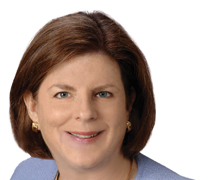The practice of law has changed dramatically since I began my career at Dewey & LeBoeuf as a summer associate in 1985. Today, as an employment litigator and counselor, I constantly focus on changes in the workplace and how I can help my clients keep up. Two changes in particular will define the careers of today’s new lawyers. First, multiple career moves are now the norm, and lawyers can expect to move many times over their careers. Second, technology – used broadly to include the internet, remote on-line access, smartphones, and social media – has transformed the profession.
In practical terms, this means each of us must plan and develop our own career and not depend on employers to ensure our success. Personal planning and branding are essential, as is the ability to take credit for our accomplishments. Look at those ahead of you and take stock. Do you see a path for yourself? Do you have the tools you need to get there? It’s easy to view others’ success as the product of luck, but luck rarely comes without hard work. We can’t be reluctant to share our achievements or our expertise. We should always find time to mentor.
Second, technology has given us a 24/7 workplace. The ability to work anytime and anyplace is empowering, but demands for instantaneous response challenge work-life balance. We can’t lose sight of relationships amidst emails, IMs and texts.
I’ve been lucky to have strong female influences, and one person in particular stands out. Years ago, I met Carole Hoover, principal of Hoover Milstein in Cleveland. Carole acted as the neutral mediator in a case where my client had been sued. I was impressed with her ability to maintain a calm presence and unfailing dedication to respect and dignity for all, despite rising tempers and more than the usual amount of lawyerly posturing. In doing so, she gave three groups with widely divergent views the tools to bridge very challenging racial issues. I knew she was a person I could learn from and we stayed in touch over the years.
Carole has taught me that the best way to achieve your goals is to envision success. Carole starts every session by asking, “How do we define success?” and closes by measuring that success and planning next steps. I am grateful for her mentoring and friendship, and I strive to emulate her strength, judgment and grace in my professional and personal relationships.







